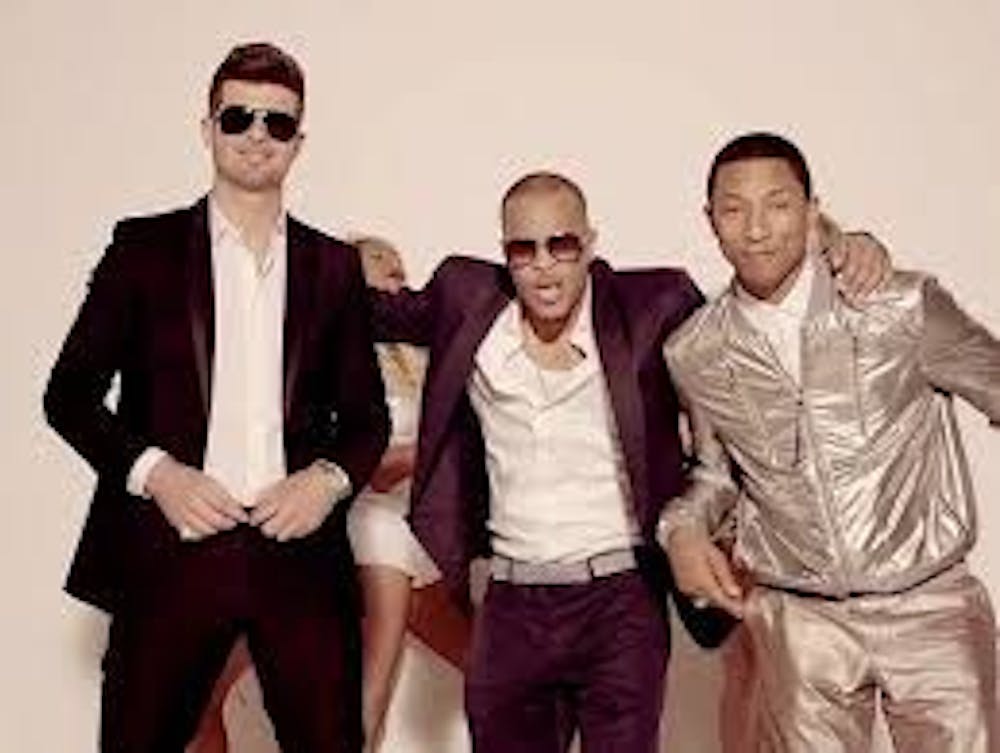An argument for "Blurred Lines"
Is it promoting rape culture? Demeaning to women in general? Too funky for anyone to care? WHAT RHYMES WITH HUG ME? These are all questions that have plagued listeners of Robin Thicke’s smash hit “Blurred Lines.” But here’s the thing about “Blurred Lines”: everybody’s listening through the controversy. Despite the countless contestations citing the blatant sexism and “rapey” vibe given off by the jam, nobody seems to be able to stop listening to this funky and infectious tune. Maybe it’s because every time Thicke claims that “you know you want it,” he also condemns that guy who tried to “domesticate ya,” and that might make it okay. Or maybe it’s because while everyone liked it when “Get Lucky” brought the groove, everyone loved it when “Blurred Lines” brought the funk. The bottom line is that summer songs are meant to make everybody want to get up and dance, to make everyone feel way sexier than they actually are, and “Blurred Lines” does exactly that. It was absolutely the song of the summer. That being said, could we maybe give it a break from the radio?
An argument for "Get Lucky"
Even though the charts were packed with pop hits by ex–Disney stars, “Get Lucky” was the one radio–abused song this summer that was too good to ever get annoying. Crafted by the French electronic duo Daft Punk and featuring Pharell Williams' smooth vocals, “Get Lucky” combined the perfect amount of ‘70s disco and contemporary pop melodies to make #summer2k13 a groovy one. This dance party song has a fast–paced electronic beat reminiscent of a modern–day Chic song. The song’s grooviness is clearest in its optimistic and summer–appropriate lyrics. Pharell belts out at the beginning of the chorus, “So let's raise the bar and our cups to the stars.” Not only did this song take over radio all summer, but it's also been the subject of many Facebook statuses and profile picture captions. Between the silky beats and upbeat, youthful lyrics, it’s a song that’s hard not to like. Like it or not, "Get Lucky" should be around for a while —the anticipation that built up to Daft Punk’s first album 13 years will keep it popular throughout the fall and spring semesters.

